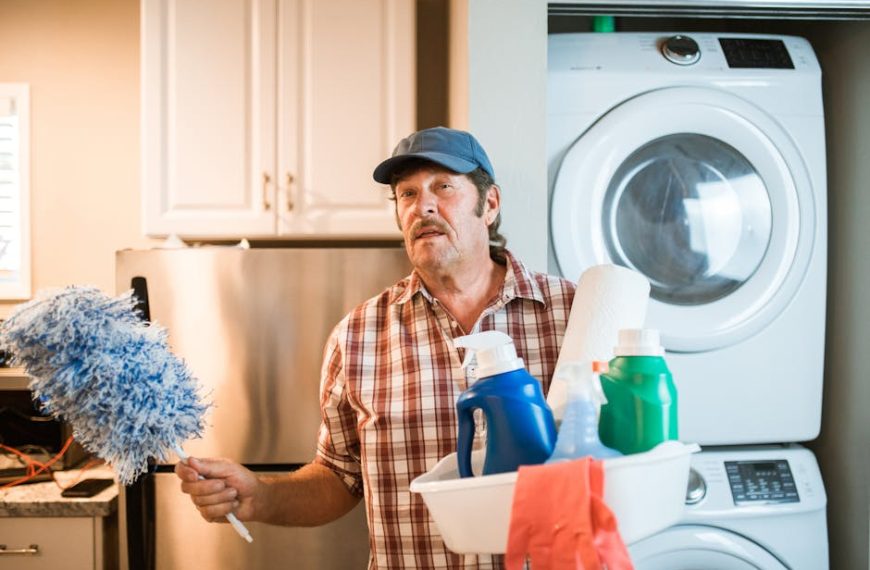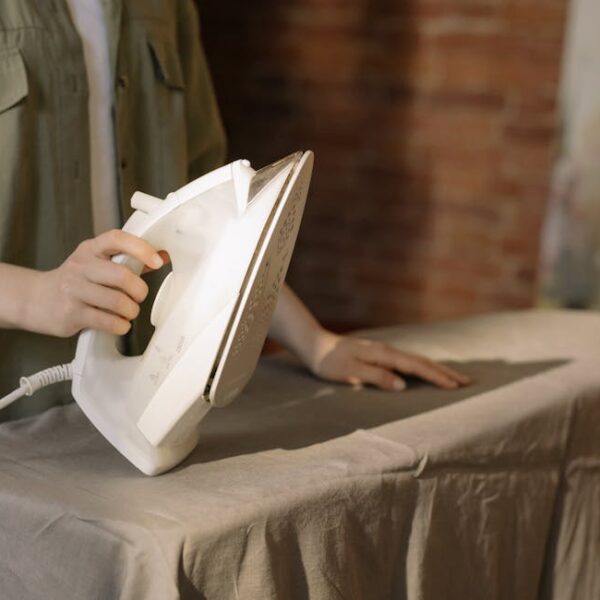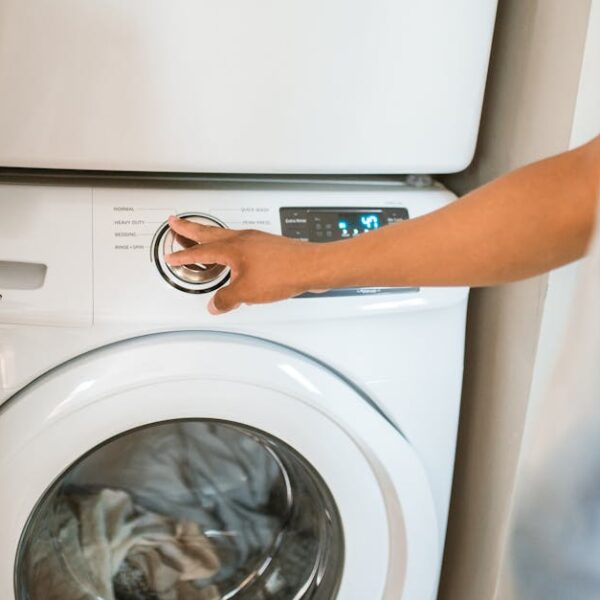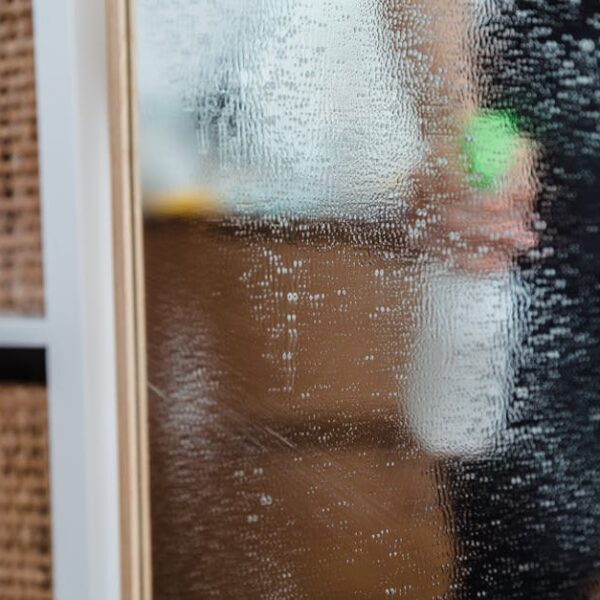Granite countertops have become a popular choice for homeowners, thanks to their durability, beauty, and wide variety of color options. Derived from nature, granite is a hard, crystalline rock composed mostly of quartz, feldspar, and mica. This composition results in a robust and durable surface that can withstand regular kitchen use. However, granite countertops also have some hidden vulnerabilities. They are porous, meaning they absorb liquids, and harsh cleaning methods or chemicals can damage them.
Improper cleaning can lead to numerous adverse effects on your much-loved granite countertops. Some potential risks include discoloration, etching, or surface degradation that can degrade the appearance and longevity of your granite counters.
The typical cleaning practices for granite surfaces include using mild soap and warm water, specialty stone cleaners, or cleaning wipes designed specifically for granite. Each of these methods has its advantages, but they also come with potential drawbacks, which can include leaving a residue or dulling the gorgeous shine of your granite.
What is Steam Cleaning and Advantage
Steam cleaning is not just for carpets or upholstery; it is a versatile method that involves using steam to clean various surfaces in your home. The steam cleaning process uses heat to create steam that helps to break down grime, sanitize surfaces, and offers an eco-friendly cleaning option.
Some of the benefits of steam cleaning include its ability to kill 99.9% of bacteria, leaving your surfaces clean and safe. It’s also eco-friendly since it requires only water, eliminating the need for harsh chemicals.
Before you turn to steam cleaning, here are some facts to consider:
• Confirm if your granite countertops are sealed.
• Test steam cleaning on an inconspicuous area before you steam clean the entire countertop.
• Avoid using steam cleaning too frequently on your granite surfaces.
The Potential Dangers of Steam Cleaning On Granite Countertops
As appealing as steam cleaning might sound, it could pose a threat to your granite countertops. The intensity of the steam’s heat and pressure can cause harm, particularly to the sealant that protects the granite’s porous surface. This damage can lead to unanticipated corrosion, discoloration, and compromises the overall longevity of your countertop.
Understanding the science behind steam cleaning and its potential impacts on granite surfaces, it is clear that the heat and pressure from steam can compromise the sealant on the countertops. Degraded sealant exposes the granite’s surface, making it susceptible to potential damage.
When compared to traditional cleaning methods, steam cleaning could be more damaging over time, despite its powerful cleaning and sanitizing benefits. The key difference between these two methods lies in their impact on the countertop’s sealant: traditional methods are less likely to degrade this protective layer than steam cleaning.
Can I Use Vinegar to Steam Clean My Granite Countertops?
When considering methods for cleaning granite countertops, many wonder about vinegar. However, understanding distilled versus white wine vinegar is crucial. While vinegar is effective for many surfaces, its acidity can damage granite over time. Opt for pH-neutral cleaners specifically designed for stone to preserve your countertops’ beauty.
Preventive Measures When Cleaning Granite Countertops
When it comes to maintaining the beauty and durability of your granite countertops, it’s vital to understand how to clean them without causing damage. Taking the necessary precautions can go a long way in lengthening the lifespan of your granite kitchen countertops.
Here are the essential preventive measures you should adhere to:
- Constantly wipe down the countertops using a soft, microfiber cloth and warm water.
- Use pH-neutral mild soap or cleaners specifically designed for granite surfaces.
- Avoid cleaners that contain vinegar, lemon, ammonia, or bleach, as these can be too harsh for the granite’s surface.
Some best practices for taking care of your countertops include:
- Regularly sealing your granite countertops. This creates a protective layer that helps to prevent damage and absorption of liquids.
- Wipe up spills right away to prevent them from seeping into the granite, especially acidic substances like wine, coffee, or fruit juice, which can etch the surface and cause damage.
- Do not place hot pans directly on the surface. Use a trivet or pad to prevent direct heat contact, which might cause damage.
Professional Advice on Steam Cleaning Granite Countertops
Ask any home improvement professional or stone care expert, and most will warn against using steam cleaning on your granite countertops. Its high temperature and pressure, while excellent for killing bacteria and lifting grime, are sadly not ideal for the granite’s porous surface and sealant.
However, there are circumstances where steam cleaning could be beneficial, especially for deep cleaning. Still, professionals advise this should not be a regular cleaning practice. Said differently, steam cleaning isn’t intrinsically bad—it’s just best used sparingly and with caution.
When concern arises about cleaning your granite countertops, follow these recommended steps:
• Consult with a stone care professional or granite countertop supplier.
• Test any new cleaning method on an inconspicuous area first.
• Consider professional deep cleaning services if the countertop is heavily soiled.
In a nutshell, while steam cleaning does have some appealing benefits, it might not be the best method for your granite countertops. It’s about weighing those benefits against the potential risks and using your better judgment. Regularly clean with mild, granite-friendly cleaners and observe proper maintenance routines for the best results. Always remember that prevention is better than cure – especially when it comes to maintaining the aesthetic appeal and longevity of your granite countertops.
Key Takeaway:
- Granite countertops, being naturally porous, are sensitive to different cleaning methods. Improper cleaning can result in discoloration, etching, or surface degradation.
- Steam cleaning, while beneficial for its sanitation capabilities and eco-friendliness, can potentially damage granite countertops by causing corrosion, discoloration, and harm to the sealant.
- Prevention methods, like regularly wiping down the countertops, using pH-neutral mild soap, and avoiding harsh cleaners can effectively maintain granite countertops.
- Professional advice generally dissuades from using steam cleaning frequently on granite countertops due to its potential detrimental effects, suggesting it to be used sparingly and with caution.
Taking proper care of your granite countertops can extend their longevity and maintain their shine. Even though steam cleaning has its benefits, remember that every method doesn’t work for every surface. Granite is beautiful and durable, but it requires specific care to keep it at its best. Analyze all the pros and cons before choosing your cleaning methods and always consult professionals when in doubt.
FAQs
Q: How frequently should I seal my granite countertops?
A: The frequency of sealing depends on the usage and exposure to harmful substances. To play it safe, we recommend sealing your granite countertops annually. However, consult with a professional for personalized advice.
Q: Are there any natural homemade cleaners suitable for granite countertops?
A: Yes, a mix of warm water and mild, pH-neutral dish soap can be used as a homemade cleaner. However, avoid vinegar or citrus-based cleaners as they can etch the surface.
Q: Can I use baking soda to remove stains from my granite countertop?
A: Baking soda can be used for stubborn stains, but it should not be a regular cleaning agent for your granite countertops. Always test on a small, inconspicuous area first.
Q: Can I place hot pots and pans directly on my granite countertop?
A: It’s best to avoid placing hot pots and pans directly on the granite countertop as high temperatures might cause damage.
Q: Does steam cleaning effectively sanitize granite countertops?
A: While steam cleaning can kill most bacteria and sanitize surfaces effectively, the heat and pressure can damage the sealant. We suggest using it sparingly or consulting professionals when required.
Please feel free to comment and share the article. Explore more posts on our website to know more about home improvement tips and tricks.












